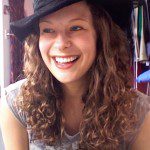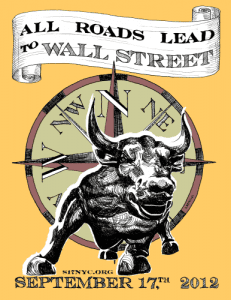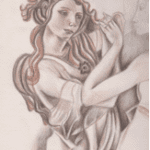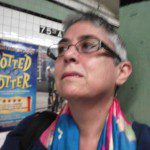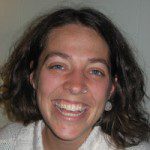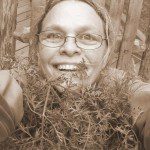Laura Paskell-Brown lives in Brooklyn, New York. As well as working on a PhD in psychology, she is a Young Leader with Women of Spirit and Faith.
I grew up in a socialist household. I was breastfed on Karl Marx, and I argued with kids in kindergarten that “a different world” was possible. For many years I defined myself through this.
Yet, at the age of 30, struggling with addiction and the reality that even “a different Laura” didn’t seem possible, I just couldn’t keep up the faith. I dropped into despair.
Two years and three recovery programs later I had regained my faith. But this time my Higher Power wasn’t Marx or Engels, She was bigger than that, and Her power lay in love.
During this process I had taken a thorough inventory of myself. I saw that I had big resentments against corporations, the American government and George Bush. As I looked at myself closer however, these resentments became less and less tenable. I hated Rupert Murdoch for being greedy and stealing from the taxpayer, but as a compulsive thief (one of my many addictions) I had also been greedy, and my sticky fingers had stolen from all kinds of places. I justified these actions, and I made myself different from Murdoch. But how different were we, except that he seemed to be doing it on a larger scale? My sponsor made it clear: if I was to forgive myself for these transgressions, I must forgive others first.
With this new awareness I entered Occupy Wall Street. I loved the slogan “We are the 99 per cent” for alerting us to our similarities and not our differences. But with my new awareness, I wanted to expand it to “We are the 100 per cent”. So it was that my involvement at OWS was mainly in the “consciousness” working group. We did not focus on “their crisis” or the fault of others, believing that such talk would only disable us. After all, if they are the problem then the most obvious solution lay in them changing their actions, and we would have a lesser role to play.
Today I believe it is our collective actions that maintain our current realities, and that therefore the solution lies with a shift in all of our actions; a shift already manifested in the way we created life in Zuccotti Park. We showed that when we decide to come together to do it differently we can feed each other, keep each other warm, treat the sick, carry out creative projects, problem-solve, and involve everyone in democracy.
What was the secret? Rather than focusing on what they are doing wrong we focused on what we can do right. This places the power back in all of our hands. After all, if we are able to provide each other with these things, why do we need to ask them for more money? Why do we need them to give us democracy, when we are capable of living it, to give us abundance when we have discovered ways to enact it? If OWS has proven anything, it is that democracy and abundance, creativity and usefulness, productivity and joy come from our decision to take care of each other. When we do this, money and job creation schemes become irrelevant. We can make things better by just deciding to act as One.
“But we need them to change the laws before we can do all of those things!” we worry. “As the law stands, they own all the stuff we need.” This thinking is part of our collective myth that others must fix things before we can act appropriately. In defiance of this illusion OWS simply acted, and things began to change. We took decisions and practiced new ways of acting, which became new structures, new knowledges and new realities.
Acting together in love is a method of reform that far outweighs the power of law making because it does not rest on the assumption that humans will only do the right thing when it has been legislated. We have laws against stealing and yet we have stolen (I certainly did), laws against killing and yet we have killed, laws that require the safety and education of our children and yet we have failed them over and over again. We have proven that these rules can be easily broken. Occupy changed things, not through making them mandatory or by outlawing them but through our own desire to be different and to place human life above all things. What need do we have for any other law than that life ought to come first? What question do we need to ask ourselves aside from: “What would love do next?”
Happy Birthday Occupy Wall Street!

